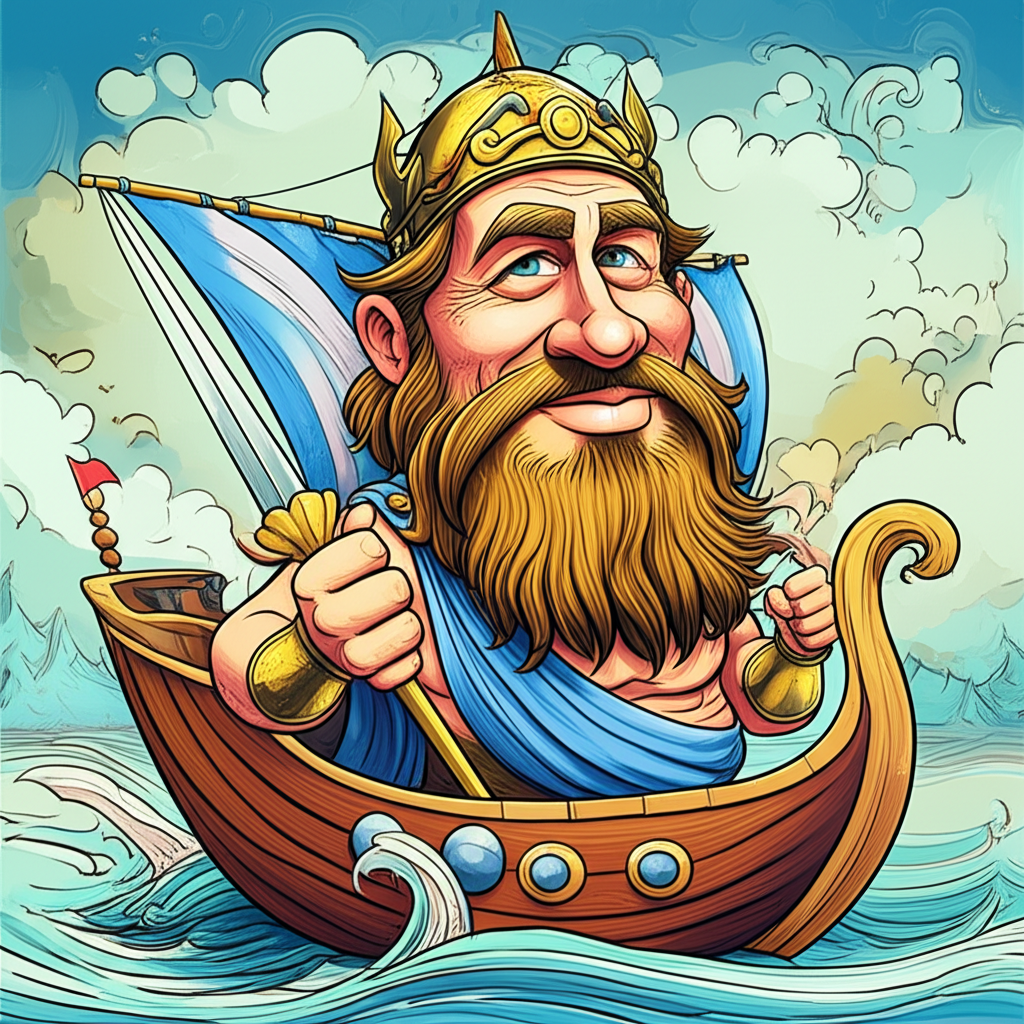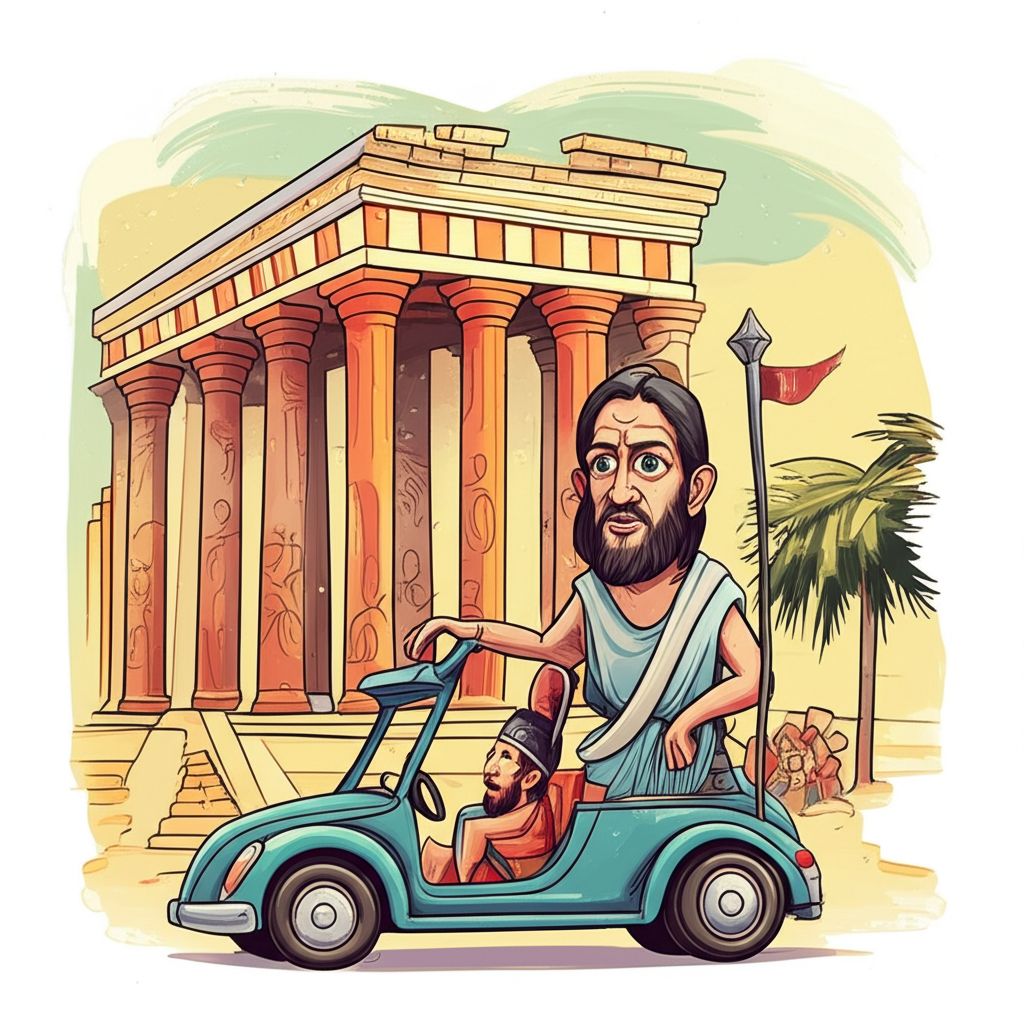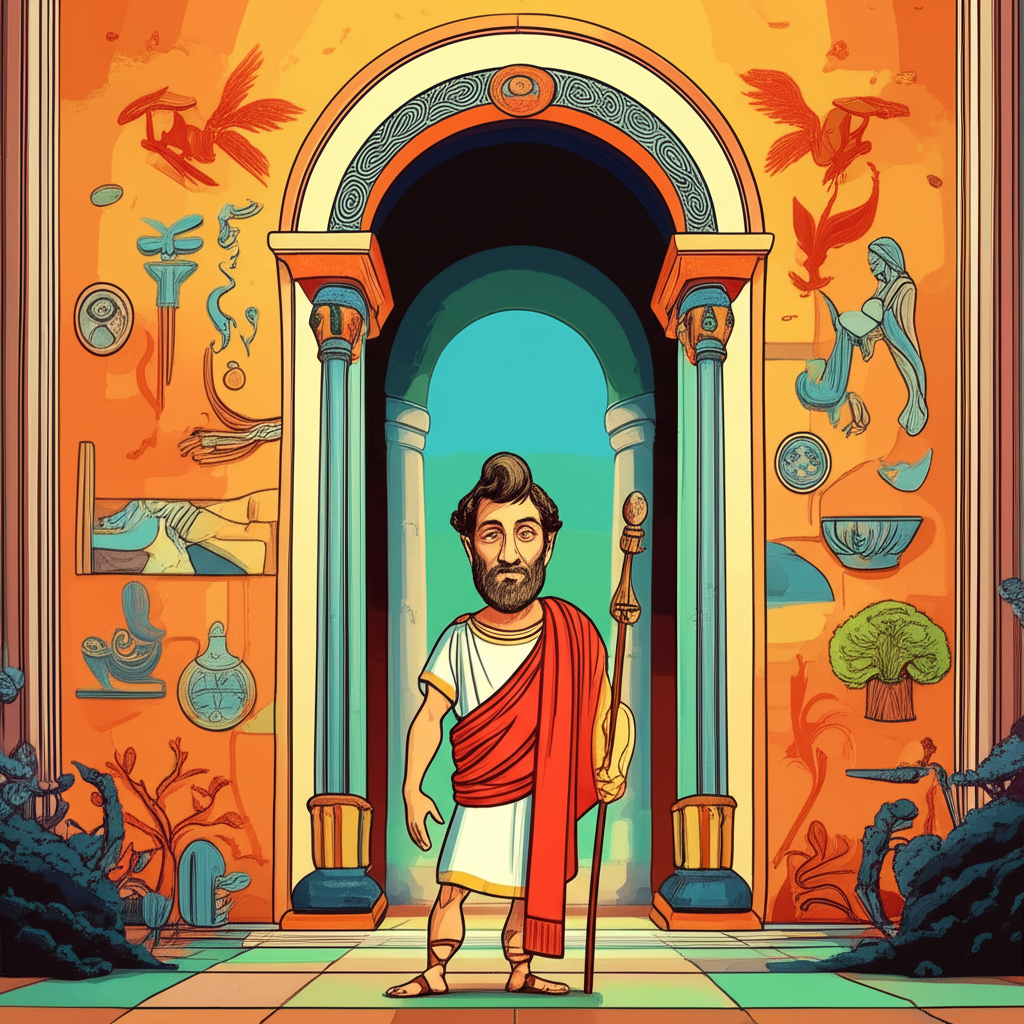
From the sun-drenched hills of ancient Greece, where olive groves shimmered under a cerulean sky and the whispers of the gods were said to echo through the windswept mountains, comes a tale woven into the very fabric of Hellenic culture. This is the story of Heracles, a hero whose name would become synonymous with strength and perseverance, and a peculiar, perilous voyage connected to the sacred site of Delphi. It is important to remember that this is a traditional story, a product of ancient imagination, shared through generations to explain the world and the human condition.
Origins and Cultural Background: A World of Gods and Mortals
The myths of ancient Greece emerged from a civilization that thrived around the Aegean Sea for centuries, a period characterized by a vibrant tapestry of city-states, intricate political landscapes, and a profound connection to the natural world. For the ancient Greeks, the world was not a purely material place. It was a realm alive with unseen forces, where the whims of powerful deities—Zeus, king of the gods; Apollo, god of music and prophecy; Poseidon, ruler of the seas—could shape the destinies of mortals. Natural phenomena, from the fury of a storm to the bounty of a harvest, were often attributed to divine intervention.
In this worldview, heroes like Heracles occupied a unique space. They were mortals, born of human parents, yet often possessed of divine parentage or blessed with extraordinary abilities by the gods. Their lives were a constant negotiation with fate, a struggle against monstrous challenges, and a testament to the potential of human courage and resilience. The myths served as a form of cultural instruction, exploring themes of heroism, hubris, piety, and the complex relationship between humanity and the divine.
Character Description: The Demigod of Unyielding Strength
The central figure in this narrative is Heracles, more commonly known by his Roman name, Hercules. He is a demigod, the son of Zeus and the mortal woman Alcmene. From his very infancy, Heracles displayed an almost supernatural strength. As a baby, he is said to have strangled two serpents sent to kill him in his cradle, a feat that foreshadowed his future battles against formidable creatures.
Heracles is not merely a brute force; he embodies an ideal of heroic endeavor. His symbolic attributes are manifold. His immense strength represents the raw power of nature and the potential for human physical prowess pushed to its absolute limits. His unwavering determination and his willingness to face seemingly insurmountable odds symbolize the triumph of will over adversity. He is often depicted with a lion’s skin, a trophy from his first labor, the Nemean Lion, which signifies his dominance over wild beasts and his mastery of the untamed. His club, a simple but effective weapon, further underscores his reliance on physical might, but also on practical application of that strength. He is a figure of both awe and sometimes apprehension, a force of nature channeled through a mortal frame.
Main Story / Narrative Retelling: The Oracular Debt and the Delphic Serpent
The story of Heracles and the voyage to Delphi is not one of his most widely known Twelve Labors, but it offers a fascinating glimpse into the workings of the ancient Greek psyche and their reverence for oracular sites. The tale often begins with a peculiar situation: Heracles, having completed some of his arduous tasks, found himself indebted to the oracle at Delphi. The specifics of this debt vary in different retellings, but a common thread involves a transgression or a misunderstanding that required appeasement.
One version of the myth recounts that Heracles, in a fit of divine-induced madness, had killed his own children and his wife. In his grief and remorse, he sought purification and guidance from the Pythia, the priestess of Apollo at Delphi. The oracle, through her cryptic pronouncements, instructed him to serve King Eurystheus and perform a series of impossible tasks – the Twelve Labors – as penance. However, another strand of the myth, the one more directly related to a "voyage," involves a specific instance where Heracles was denied access to the oracle or angered its divine patrons.
In this particular narrative, Heracles arrived at Delphi, eager to consult the oracle, but was met with silence or obstruction. The reason for this denial was that he had failed to pay a prescribed tribute or offering. The Oracle of Delphi, considered the most important sanctuary and source of divine prophecy in the ancient world, was not to be approached lightly. It demanded respect and appropriate offerings. Enraged by this perceived slight and his inability to receive the guidance he sought, Heracles, in his characteristic impetuosity, took matters into his own hands.
He decided to seize the sacred tripod, the seat of the Pythia, believing that by possessing it, he could force Apollo to speak to him and grant him his own oracle. This act of defiance was a direct challenge to the god of prophecy himself. Apollo, naturally, was incensed. A divine confrontation ensued, a cosmic struggle between the might of the demigod and the power of the god. The tale describes a furious wrestling match between Heracles and Apollo, with Zeus himself eventually intervening to prevent further bloodshed and restore order.
As a resolution, Zeus decreed that Heracles must return the tripod and then, as a form of penance and to further prove his submission to divine will, undertake a special task. This task involved a journey to the distant shores of the Euxine Sea (the Black Sea) to retrieve a precious item – often described as the golden apples of the Hesperides or a mythical beast – for the god of the sea, Poseidon, or for Apollo himself. This expedition, far from the familiar landscapes of Greece, would become known as the Voyage of Delphi.
The voyage itself was fraught with peril. Heracles would have sailed through treacherous waters, facing storms conjured by angered sea deities, battling monstrous sea creatures that lurked in the depths, and perhaps even encountering hostile peoples along the way. His strength, courage, and ingenuity would have been tested at every turn. He might have sought the aid of fellow heroes or divine beings, showcasing the interconnectedness of the mythological world. The success of this voyage, therefore, was not just about retrieving an object; it was about demonstrating Heracles’s ultimate subservience to the divine order, his ability to endure hardship, and his unyielding spirit in the face of overwhelming odds.
Symbolism and Meaning: Navigating the Human Condition
The myth of Heracles and the Voyage of Delphi, while fantastical, carried profound symbolic weight for the ancient Greeks. The Oracle of Delphi itself represented wisdom, prophecy, and the divine will. Heracles’s initial attempt to seize the tripod symbolizes the human desire to control destiny, to bypass the established order, and to impose one’s will upon the sacred. His subsequent struggle with Apollo and Zeus highlights the inherent power imbalance between mortals and the gods, and the consequences of hubris.
The voyage itself can be interpreted as a metaphor for the human journey through life. The treacherous seas represent the challenges, uncertainties, and dangers that individuals face. The retrieval of the precious item symbolizes the pursuit of knowledge, the attainment of goals, or the quest for redemption. Heracles’s success in overcoming these obstacles underscores the ancient Greek ideal of areté, or excellence, achieved through effort, virtue, and divine favor. It speaks to the resilience of the human spirit and the capacity for growth through suffering and trial. The myth also reinforced the importance of piety and respect for divine institutions.
Modern Perspective: Echoes in Contemporary Culture
While the direct belief in these mythological figures has waned, the stories of Heracles and his adventures continue to resonate in modern culture. Heracles remains a powerful archetypal hero, his name invoked in literature, film, and video games as a symbol of unparalleled strength and heroism. He has been depicted in countless adaptations, from epic poems and plays to blockbuster movies and animated features, each reinterpreting his labors and his character for a contemporary audience. In literature, he often serves as a figure of endurance and moral fortitude. In popular culture, his image is frequently used to represent physical prowess and unwavering determination. Academically, the myths are studied in fields like classics, mythology, and comparative literature, offering insights into ancient belief systems, cultural values, and the enduring power of storytelling.
Conclusion: A Legacy of Imagination
The tale of Heracles and the Voyage of Delphi, like all ancient myths, is a testament to the rich tapestry of human imagination and the enduring need to make sense of the world through narrative. It is a cultural artifact, a story passed down through generations by the ancient Greeks, offering a window into their worldview, their values, and their understanding of the cosmos.
As Muslims, we recognize that only Allah is the true Creator and Sustainer of all existence. The stories of ancient peoples, while fascinating for their cultural and historical significance, are understood within this fundamental Islamic belief. Nevertheless, these narratives hold value in understanding the diverse heritage of human thought and creativity. The legacy of Heracles, therefore, lies not in divine power, but in the enduring power of human storytelling, in the archetypal struggle between courage and adversity, and in the vibrant cultural heritage that continues to inspire and intrigue us. These tales, viewed through the lens of cultural and historical understanding, enrich our appreciation for the diverse ways humanity has sought to explain its place in the universe.




